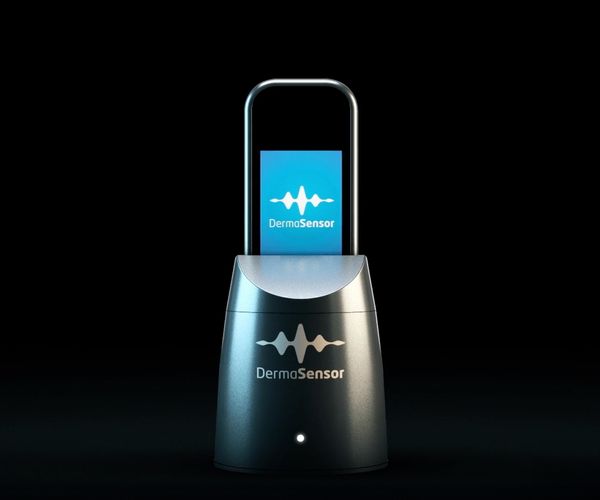BU-developed technology could halve the number of missed cancers
Maybe it’s just a funky-looking mole. Or, that irregular patch could signal bad news: skin cancer, the most common form of cancer in the United States. Although spotting skin cancer early could save your life, it can be tough for even some medical professionals to judge whether a mark is benign or potentially harmful. A new noninvasive skin cancer detection device—powered by technology pioneered by a professor at Boston University’s College of Engineering—aims to make telling the difference easier and faster.
The US Food & Drug Administration recently cleared for US markets DermaSensor, which uses light and artificial intelligence to examine skin lesions and assess whether a patient should be referred to a specialist. The company bringing the handheld device to market says it has the potential to slash the number of missed skin cancers by half. DermaSensor’s underlying sensing technology, elastic scattering spectroscopy (ESS), was developed and refined by Professor Irving J. Bigio (BME, ECE). He’s a scientific advisor to the eponymous company behind the device, which also licensed patents from Bigio and BU.

“The FDA had designated this as a breakthrough technology, which means they gave it higher priority for review because they see it as having a real impact,” says Bigio. “And the trials showed that it actually does work.”
Bigio says DermaSensor’s clearance reflects well on not only the researchers in his Biomedical Optics Lab, but also BU’s cross-disciplinary approach to fostering new technologies.
“It’s a positive statement about BU’s commitment to interdisciplinary research that involves the engineering and physical sciences, as well as the medical school,” says Bigio, who also holds appointments in BU’s physics department and the BU Chobanian & Avedisian School of Medicine. “They are supportive of collaborative research across schools.”
According to the American Academy of Dermatology Association, one in five of us will grapple with skin cancer at some point in our lives, which is why experts recommend regular skin exams.
Read the full story at BU’s The Brink.
Top: photo courtesy of DermaSensor/Business Wire
